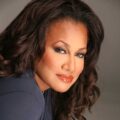Author of Take Heart: Daily Devotions with the Church’s Great Preachers (Kregel Publications)
by Trisha Bridges Smith
 T4J: What was your purpose in writing Take Heart?
T4J: What was your purpose in writing Take Heart?
Diana Wallis: I hope that readers will be made stronger in their Christian faith by resolving to some degree those questions we tend to ask when we are in pain: Why me? How can God love me and permit me to go through such loss and suffering?
T4J: I notice these “thumbnail biographies” in the back of the book. Why did you include those?
DW: The sermons are from many preachers throughout the history of the church, and I wanted to give readers a bit of historical perspective of the times in which they lived and of some of the events of their lives, to, as one reviewer said, put human faces on them.
T4J: Do you feel you look at writing differently because you are also an editor?
DW: I look at writing more as a craft than some authors do. It’s a craft that requires practice and polishing.
T4J: Who have been your biggest influences in life and particularly in your life as a writer?
DW: I’m not sure that the biggest influences in my life have been individual people. My training in Bible has probably been the foundation—not that I have always obeyed it or lived by it perfectly, but it’s the guide by which I try to judge the issues in life. My Bible courses also taught me some fundamental skills that carry over into writing and editing—thinking analytically and paying attention to details.
TJ4: What are some of the things you learned as a first-time author?
DW: Once the manuscript goes to the publisher, everything is dictated by the publishing schedule. And everything always takes longer than anyone thinks, so making changes is very limited. And I’m disappointed in myself that I wasn’t any better at meeting deadlines than any other author.
T4J: Do you write devotional material only, or have you written other material for different audiences?
DW: I’ve written and rewritten technical specifications, advertising and promotional copy, features for a women’s and a children’s Bible, and a novel. And I’ve edited a wide variety of Christian books.
T4J: Obviously, Take Heart is a Christian book, but can you tell us in a more general way how your Christian faith relates to your writing?
DW: I believe my spiritual gift is exhortation in the biblical sense of encouraging or comforting. Writing is a tool that can serve that gift. I wrote Take Heart not because I’m a writer but because I’m an encourager.
T4J: What training do you have in writing? Do you consider yourself to be a good writer with a God-given talent? Or did you have to work to get to where you are now, taking classes on writing and such?
DW: My best training for writing was the Bible courses I took in college. Bible study requires analytical thinking and concentration on words and details. Writing isn’t magic. It’s a craft you learn, though your personal abilities will shape the development of your craft. Take writing and English classes, by all means. Even good writers need to sharpen their skills. Let others critique your work and listen to and respect the feedback you get.
T4J: Who are some of your favorite writers?
DW: I respect craftsmanship. Philip Yancey is at the top of my list for contemporary nonfiction Christian writers for both content and craftsmanship. He writes and rewrites until the content is enhanced, not hidden, by his writing.
T4J: How many times was your work rejected before a publisher finally accepted it? Did publishers give you feedback?
DW: With Take Heart, I had an idea that I believed suited a publisher I already had a relationship with as a freelance editor. I knew them well, what kind of material they were interested in. I talked with them before I submitted my proposal and shaped the proposal accordingly, and they accepted it. You can’t really expect a publisher to teach you to write, if that’s the kind of feedback you’re looking for. It’s not their job, and they don’t have time. The major publishers receive thousands of queries.
T4J: What advice would you give to someone interested in pursuing writing as a career?
DW: Some best-selling authors aren’t very good writers, but if you want to be skilled in your craft, practice editing your own work. Don’t consider the first thing you throw down on paper as final. If I leave a project for 24 hours, I’m much more objective about what I’ve written. I rewrite and rewrite until I’m satisfied that every word is the right word to communicate my idea to the audience I want to reach.
Find ways of getting feedback from people—participate in a writing group, read things to classmates. Don’t take criticism of your writing as criticism of you. When people criticize your work, ask questions to be sure you get at what they mean. The chief purpose in writing is communication, and if readers don’t understand, you have the problem, not them.
Also, consider not making writing your career. You will have bills to pay, and your craftsmanship can suffer if you are just cranking out as much as you can to make a living. If you have another career but write also, you have less stress and maybe more to say. If you pursue other interests, you have something to write about. When I was a teenager, I wrote to express my feelings, to analyze my life. There’s value in that, but it’s tough to make a living that way. The ability to write well will always be useful—somebody has to write the company’s annual report or a scientific paper for publication or advertising copy for a new product or a progress note on a hospitalized patient. Writing is a tool. A writer is skilled at using a particular tool.





Be the first to comment